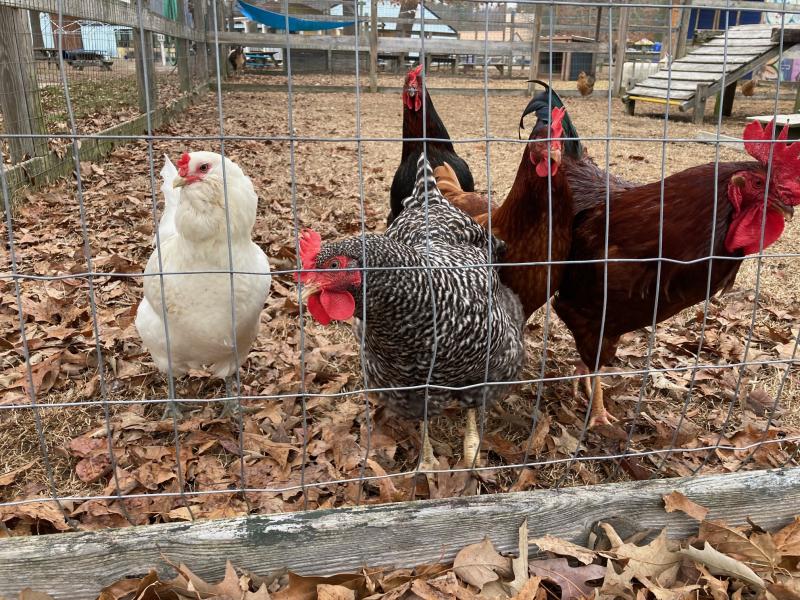Milton council clucking about backyard chickens
Milton Town Council is considering allowing backyard chickens within the residential district.
The measure has been sent to the planning and zoning commission for a formal proposal.
Currently, chickens are not allowed within town limits except for farms that have a special permit for animal grazing. According to a memo from Project Coordinator Tom Quass, three municipalities in Kent and Sussex counties allow backyard chickens: Seaford, Wyoming and Greenwood. All allow the keeping of chickens with conditions, such as the chickens must be penned and no foul buildup of odor or waste. Seaford requires a license from the city manager to have chickens, and Quass reported that no one has ever applied. In Wyoming, Quass said, officials have not reported any problems other than the occasional loose chicken, while Greenwood officials reported only the occasional rooster violation.
While roosters make a lot of noise, hens do not need a rooster to lay eggs. Roosters are only needed when a farmer wants to fertilize the eggs to create more chickens. Otherwise, hens will lay eggs, usually every day.
The main expenses for chickens are constructing the coop and buying feed. Chickens can attract potential nuisance animals such as snakes, mice or foxes, and when allowed to roam free, they can stray into the path of vehicles. Much like a cat’s litter box, a chicken coop does not usually smell if it is cleaned out regularly. A benefit of chickens is that they will eat kitchen scraps like leftover fruits and vegetables that would otherwise be thrown in the trash.
Mayor John Collier said, “There are upsides and downsides to this. Chickens are fun. They are entertaining. The byproduct of eggs is great.”
Collier said the downside is the attraction of nuisance animals, both on the ground, like skunks and possums, and in the air, in the form of hawks.
While council is receptive to the idea, the issue is how best to address it in town code. Town Solicitor Seth Thompson said the best way is through zoning code, where the town can regulate it as an accessory use and specify what districts can have chickens, where the coop can be and how many chickens someone can have. Collier said in addition, the town does not have an animal control officer to enforce regulations.
Council decided to send the idea to planning and zoning for an advisory opinion that would examine any unintended consequences of having chickens. That motion passed by a 5-1 margin, with Councilman Rich Baty opposed.
Ryan Mavity covers Milton and the court system. He is married to Rachel Swick Mavity and has two kids, Alex and Jane. Ryan started with the Cape Gazette all the way back in February 2007, previously covering the City of Rehoboth Beach. A native of Easton, Md. and graduate of Towson University, Ryan enjoys watching the Baltimore Ravens, Washington Capitals and Baltimore Orioles in his spare time.






















































